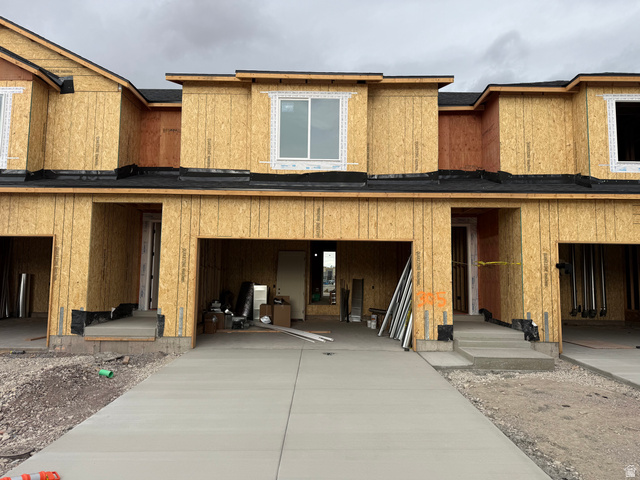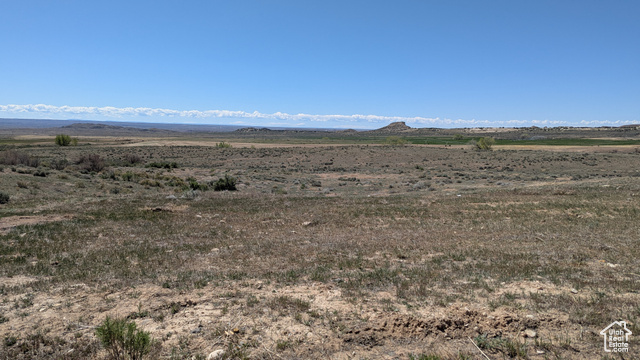
The Utah housing market is sending a ton of mixed messages right now, and if you're confused by it, you're not alone. On one side, you have buying conditions for housing as surveyed by consumers showing that the housing market has deteriorated rapidly sitting at levels only seen two times since 1960 when in both of those instances we actually saw severe recessions. And then on the flip side, you have Zillow predicting that US house prices will jump by another 6.5% over the next year. Now remember, this is coming at a time when mortgage rates are still sitting at a level above 7%. And with that, the average home buyer has lost nearly $71,000 in purchasing power over the last year as mortgage rates refuse to ease. What we've seen is that mortgage rates at 7% are making everything worse for US home buyers. But the good news is that there's people out there like again, Zillow, believing that mortgage rates have once again reached their peak.
And whether or not that's the case, what we do know is that inflation and employment is what the Fed is actually paying attention to with regards on how they plan to navigate the Fed funds rate in the future. And when we start talking about economic data and mixed messages, the two at the moment are going hand in hand. On one side you have data showing that the economy is slowing. And then on the other hand, you have data showing that the economy is still really, really strong. So what should you actually be paying attention to if you're someone out there looking to buy a home or sell a home in this housing market?
This past week of September 2023 we gotten news that US consumer confidence just saw the biggest drop in two years. And the primary reason for that is higher borrowing costs, which is a direct correlation of what the Fed is trying to do by hiking the Fed funds rate. Their goal here is to ultimately slow the economy down. And they do that by raising rates where not only the cost to borrow money is more expensive, but also raising rates on things like credit card and car loans.
So by the Fed hiking rates, that typically means that consumers are less willing to go out there and spend money in the economy, which should slow the economy and ultimately bring inflation down. And with that, we saw the second quarter of US GDP actually be revised lower. In addition to the US labor market actually losing some steam as both job openings and resignations both decline. And you might be watching this going, Jeb, less job openings. Isn't that a good thing for the economy? Well, in some cases the answer can be yes, depending on how you look at it. The Fed sees less job openings as a slowing economy, where on the other side, more job availability means an opportunity for employers to have to pay more, which in turn adds to wage growth, which can't actually stimulate inflation, which is exactly what they're trying to combat.
So by seeing less job openings available that shows the Fed that what they're doing is actually working, which is supported by the job numbers that we saw from ADP showing that US job growth slowed dramatically in July, creating only 177,000 jobs. But if you want to talk about mixed messages, well then we have the BLS numbers showing that US employers added 187,000 jobs last month while revising both the June and July numbers down to 110,000. And with that, we actually saw unemployment jump to 3.8% from 3.5%. But once again, this is where we have mixed messages because that number's not quite as big as it looks because what we saw was a jump in the participation rate.
So even though we've seen US job openings fall for three straight months showing that the labor market is slowing, on the flip side, what we're seeing is that the conditions remain more or less tight, which is more or less ensuring that the Federal Reserve will likely have to keep interest rates higher for longer or until they break something. But the good news is we're starting to see some Fed members out there urging caution to avoid inflicting any unnecessary pain. The Atlanta Fed President Bostic believes that the current policy is appropriately restrictive, citing a number of measures showing that inflation is actually progressing in the right direction. And this is coming at a time when we're seeing the Fed's preferred measure of inflation PCE, showing that we're sitting at 4.2% year over year, which is still well above their 2% target.
And with that, we're starting to see some of the measures within PCE like housing start to catch up with that lagging data that we've talked about over the last couple of months as housing ease to 7.8% year over year, down from 8% back in June, and noticeably below the 8.4% peak that we saw back in April.
And part of the reason we're starting to see this slowdown reflected now is because we're seeing rents decline year over year. And the good news is we're likely to see rent shelter data continue to decline over the next couple of months, allowing inflation to ease even further as single family rent growth slowed for the 14th straight month. In July of 2023, the US median rent was down 1% for zero to two bedrooms across the top 50 metros with the median asking rent sitting at $1,759. But here's the thing, it's only down $18 from the peak that we saw back in July of 2022, but up nearly 25%, $348 higher during the same time in 2019 pre pandemic.
At the same time, you have US home prices nearing highs from 2022 rising for five consecutive months. On top of that, you have pending home sales up nearly 1% in July, marking the second consecutive month increase. Now, pending home sales is a forward-looking indicator as it's based off contract signing. So in turn, you're likely to continue to see strong data for the housing market over the next couple of months. And that's one reason that you have Case-Schiller showing a 5% increase in home prices in 2023, FHA and Black Knight both predicting 6%. And then you have CoreLogic in Zillow, both predicting 10% increases in 2023.
Explore Utah Real Estate

83 W 850 S, Centerville, UT
$815,000
Bedrooms: 5 Bathrooms: 3 Square feet: 3,999 sqft

653 E RYEGRASS DR #305, Eagle Mountain, UT
$387,900
Bedrooms: 3 Bathrooms: 3 Square feet: 1,985 sqft

2098 E GOOSE RANCH RD, Vernal, UT
$103,000
Square feet: 274,864 sqft
So you've got higher rates, less transactions, home prices moving higher and mixed data on the economic front. It's no wonder that you're confused by the mixed data out there in the market. And with that, we're starting to see some bad news out there for real estate agents and prospective home buyers. Is nearly 7% of the decline in home listings for sale is because those homeowners who already own a home are choosing to rent out their current home rather than sell it, which in turn adds to the inventory problem that we have out there in the housing market.
And with that, Fannie Mae just reported that single family serious delinquencies just fell below the pre pandemic low and down to the lowest rate that we've seen since 2002, which means that you're not likely to see any distress sales coming to the market, adding to inventory. So while everybody out there wants to us hey, you're just a cheerleader for the housing market, and you're just a real estate agent, you're just pushing people to buy so you can make money. Understand that neither of those are actually true. Yes, we can come off as bullish on the housing market, but it's primarily because I'm looking at supply and demand in telling you what's likely to happen based on that imbalance.
We are looking at the data and telling you that house prices are likely to move higher because there's not enough supply to keep up with the demand out there in the market. And things like the unintended consequences of lowering interest rates down into the 2, 3, 3.5% range for an extended period of time, along with a lack of building over the last 10 years is going to keep inventory from coming to the market.
In addition to that, you have demographic supporting more home buyer demand coming to the market, which means that you're likely to have this imbalance for years to come. Now, this in no way means that you need to rush out and buy a Utah house, as I always say, you need to buy when it's the right time in your life. So in turn, what you should do is create a plan and execute on that plan. But as I always say, if you're planning to buy in this market, just make sure you have a longer term time horizon. You have money in the bank and you're comfortable with the payment. But if you're curious to wonder why, I think we're at the end of an era for the housing market and things aren't likely to be like they've been the past 30 or 50 years, do me a favor and check out this video here.
The Utah housing market is currently sending mixed messages, which can be confusing for those trying to navigate it. On one hand, survey data from consumers indicates that the housing market has rapidly deteriorated, reaching levels only seen twice since 1960, both times during severe recessions. On the other hand, Zillow predicts that US house prices will increase by 6.5% over the next year. This comes at a time when mortgage rates remain above 7%, causing the average home buyer to lose around $71,000 in purchasing power over the past year.
Mortgage rates at 7% are worsening the situation for US home buyers. However, there are people like Zillow who believe that mortgage rates have reached their peak. Whether or not this is true, what we do know is that the Federal Reserve is focused on inflation and employment when planning how to navigate the Fed funds rate in the future. Currently, economic data is sending mixed messages. Some data shows that the economy is slowing down, while other data shows that it is still strong. This makes it difficult to know what to focus on if you are looking to buy or sell a home in this housing market.
More Properties You Might Like

2148 E GOOSE RANCH RD, Vernal, UT
$116,000
Square feet: 309,276 sqft

6668 S 3200 W, Spanish Fork, UT
$2,074,000
Bedrooms: 3 Bathrooms: 3 Square feet: 2,560 sqft

2031 N LAVA ROCK CIR #107, St George, UT
$4,185,000
Bedrooms: 4 Bathrooms: 5 Square feet: 5,404 sqft
In September 2023, US consumer confidence saw the biggest drop in two years due to higher borrowing costs, a direct correlation of the Fed's decision to hike the Fed funds rate. Their goal is to slow down the economy by raising rates, making borrowing money more expensive, as well as raising rates on credit card and car loans. This leads to consumers being less willing to spend money in the economy, which should slow it down and ultimately bring inflation down.
The Fed's preferred measure of inflation, PCE, shows that we are currently sitting at 4.2% year over year, well above their 2% target. However, some Fed members are urging caution to avoid inflicting any unnecessary pain. The Atlanta Fed President Bostic believes that the current policy is appropriately restrictive, citing a number of measures showing that inflation is actually progressing in the right direction.
The housing market is also experiencing mixed messages. While we are seeing US home prices nearing highs from 2022 and rising for five consecutive months, we are also seeing rents decline year over year. Single family rent growth has slowed for the 14th straight month in July 2023, with the US median rent down 1% for zero to two bedrooms across the top 50 metros.
Pending home sales, a forward-looking indicator based on contract signing, were up nearly 1% in July, marking a second consecutive month increase. However, nearly 7% of the decline in home listings for sale is because homeowners are choosing to rent out their current home rather than sell it, adding to the inventory problem in the housing market.
Overall, the housing market is experiencing an imbalance between supply and demand, which is likely to keep prices moving higher due to a lack of building over the last 10 years and demographic supporting more home buyer demand. However, this does not mean that rushing out to buy a Utah house is the best decision. It is important to create a plan and execute it with a longer-term time horizon, money in the bank, and comfort with the payment.
If your looking for a licensed Utah real estate agent give us a call at 435-414-8597
Related Articles:











